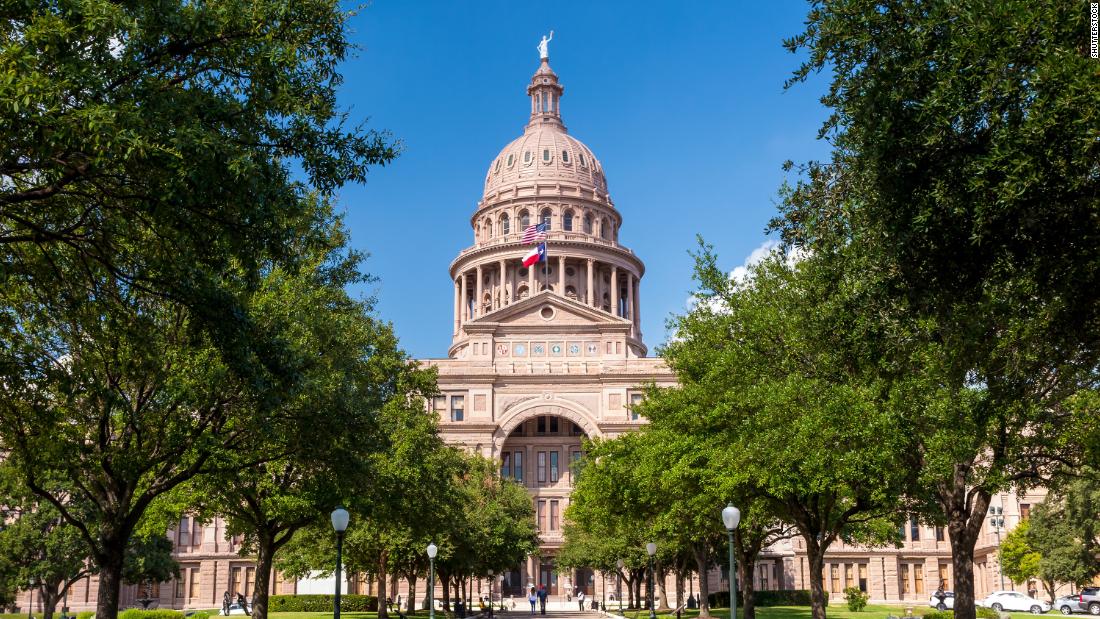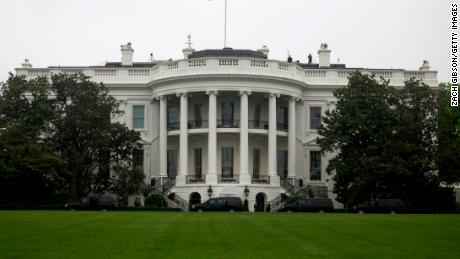The showdown in Texas may be the first sign of a more aggressive counterattack against GOP restrictive voting bills that are proliferating across the country
The showdown in Texas is only the latest example of the GOP’s attempt to pave its path back to dominance by making it harder to vote in 2022 and 2024. It represented a rare stumble in what has been a swift and organized campaign to change voting laws across the country.
The Texas imbroglio may be the first sign of a more aggressive counterattack against Republican restrictive voting bills that are proliferating from Texas to Florida and Arizona to Georgia as well as many other states.
Democrats effectively succeeded in running out the clock on this year’s legislative session by depriving the Republicans of a quorum needed to pass the bill in a late-night session. But their win may be only temporary. Republican Gov. Greg Abbott has pledged to bring up what he calls “election integrity” in a special legislative session.
Among other steps, the bill makes mail-in voting more difficult, bans after-hours and drive-through voting that helped Black and Latino voters in the Houston area cast their ballots in 2020. It prohibits early voting on Sundays — a popular practice for Black churches — before 1 pm and makes it easier to overturn an election.
Texas state Rep. Trey Martinez Fischer, who represents San Antonio, said that Democrats would not back down even if Abbott calls a special session and previewed possible legal action.
“We will not participate in our own demise,” Martinez Fischer said. “You may have the votes on the floor, but we’re all equal in federal court.”
Another Democratic Texas House member, Joe Moody, explained that the walkout was motivated by a desire to protect the right to vote, something that previously had not been taken for granted in his community.
“When you are pushed to extremes you respond to that with extreme(s),” Moody said on CNN’s “New Day” on Monday.
“The governor is always empowered under our Constitution to bring it back, to put on a special session … but at a certain point you have to draw a line and you have to decide what is right and what is wrong.”
Biden’s limited room for maneuver
The Texas voting showdown also served to highlight the Washington box constraining the President’s capacity to fight back against Republican voter suppression since Democrats cannot pass most major legislation in the Senate without GOP consent owing to the chamber’s 50-50 split.
In a statement on Saturday, Biden condemned the draft Texas law as “an assault on democracy” and as “wrong and un-American.”
He also called on Congress to pass the “For the People Act” and the “John Lewis Voting Rights Act” that seek to introduce national standards for voting access and to roll back discriminatory moves against minority voters.
But Biden has no path to passing either bill as it stands. Moderate senators like West Virginia’s Joe Manchin and Arizona’s Kyrsten Sinema oppose abolishing or amending the Senate filibuster tradition that means such measures need a 60 vote supermajority to usher legislation into law. Manchin is backing the John Lewis bill — that restores provisions of the Voting Rights Act that require states to get a federal sign-off before changing their voting laws that were gutted by the Supreme Court. But that measure alone would not allow Democrats to fully counter the multitude of election laws in the states. And even with the support of a few Republican senators, it would still likely fall foul of the filibuster.
“It would require Senators Manchin and Sinema to change their mind,” California Democratic Rep. Ted Lieu said on CNN “Newsroom” on Monday.
“Hopefully when they see Republicans continue to obstruct all their legislation that it’s going to move America forward such as the January 6 commission that they will, in fact, change their mind and allow the filibuster to be modified, especially for something as critical as voting rights.”
Some Democrats may see hope in the fact that Manchin was angry and disappointed that Republicans used the filibuster to kill off the bipartisan January 6 commission. But he has so far given no indication that he will temper his desire for bipartisan action.
How the battle against restrictive voting weighs on Biden’s Washington agenda
More evidence of Republican efforts to build on Trump’s election fraud lies are causing some Democrats to wonder how much longer it will be politically feasible for Biden to pursue deals with a Republican Party that appears bent on locking them out of power.
Most immediately this is playing out in the President’s elongated effort to find a deal with Republicans on a bipartisan infrastructure package. The effort is critical to Biden’s vow to voters to show that despite fearsome political divides, America’s leaders can unify in a bipartisan manner to provide for the common good.
Vermont Sen. Bernie Sanders, who lost out to Biden in the Democratic primary and who has been noticeably supportive of the President so far, addressed the contradiction of the current political moment in holiday weekend tweet.
“Let’s be clear. If 10 Republican Senators cannot even vote for a bipartisan commission to investigate the January 6th insurrection, 10 Republican Senators will not vote for anything meaningful to improve the lives of the American people. We must abolish the filibuster & act now,” Sanders wrote.
The tweet exemplified the increasing pressure not just from progressives but also more broadly from Democrats on Capitol Hill for Biden to leverage what may be a fleeting window of Democratic power before midterm elections in 2022.
New York Sen. Kirsten Gillibrand made a similar point on CNN’s “State of the Union” on Sunday.
“Minority Leader Mitch McConnell has already said his goal is to defeat the agenda of this administration,” Gillibrand told Jake Tapper. “We just had a vote on the January 6 rights and only had six strong souls to vote with us. That’s a problem … I don’t think there’s necessarily good will behind all negotiations.”
Gillibrand’s comments reflected hints from Republican leaders like Majority leader Chuck Schumer of New York and Majority whip Dick Durbin that the time may be winding down for talking with the GOP on infrastructure.
Rising Democratic impatience may help explain Transportation Secretary Pete Buttigieg’s warning on “State of the Union” that it would soon be time to “fish or cut bait” on an infrastructure deal and that conclusive progress was required this week while Congress is out of town.
Biden and a small group of GOP senators interested in a deal are more than $700 billion apart. Republicans have a $928 billion offer on the table after the White House came down to $1.7 trillion, but they understood the President may accept a $1 trillion package. There remain big differences on how to pay for the package and even on the definition of what “infrastructure” actually means in the 21st Century.
While the President is committed to pursuing a deal, he sent a telling signal last week that his patience is not infinite and that he is becoming increasingly caustic about Republican tactics. Holding up a list, Biden chastised GOP senators who voted against his Covid rescue plan but are bragging about aspects of the law they voted against.
If the infrastructure deal fails, that event may come to be seen as the moment when a more partisan White House approach became inevitable.
![]()








